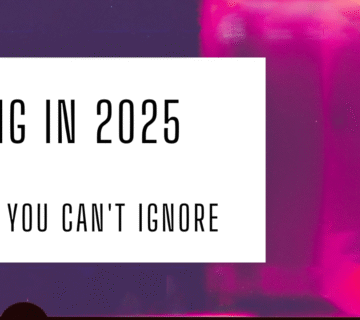Online dating has reshaped modern romance, offering more opportunities to connect than ever before. Yet, along with this increased accessibility comes a darker side—online dating scams. Whether you’re a seasoned user or just starting out, protecting your heart and your money is essential.
Table of Contents
-
The Most Common Types of Scams (And How They Work)
-
Top Red Flags to Watch for on Dating Apps
-
Practical Steps to Stay Safe While Dating Online
-
What to Do If You Suspect a Scam
-
Reporting Romance Scammers
-
Safest Dating Apps and Site Practices
-
Real Success Stories of Scam Avoidance
-
Final Thoughts and Your Safe Dating Checklist
1. Why Scams Happen on Dating Apps
Scammers target dating apps because people are naturally open to new connections—and often willing to trust quickly. According to international cybercrime agencies, millions lose money annually to romance scams, with emotional and financial damage as the ultimate cost. Scammers exploit loneliness, a desire for love, and hopefulness.
Common motivations for scammers:
-
Financial gain (asking for money or gifts)
-
Identity theft (stealing your personal data)
-
Extortion or blackmail (using compromising information or images)
2. The Most Common Types of Scams (And How They Work)
a. The Money Request Scam:
A scammer builds a romantic rapport, then creates a fake crisis—medical emergency, stranded abroad, urgent bill. They’ll ask for money or gift cards.
b. Catfishing:
Someone uses fake photos or a stolen identity to lure you into emotional connection, either for money or manipulation.
c. Malware & Phishing:
You’re sent a link (supposedly to “verify your profile” or see more photos), which installs malware, steals your information, or hijacks your account.
d. Verification Code Scam:
You’re asked for a verification code or personal info under the guise of security or access—opening you up to account takeovers.
e. Sextortion:
A scammer coaxes you into sharing intimate images or video, then threatens to release them unless paid.
3. Top Red Flags to Watch for on Dating Apps
-
Requests to move communication off the platform (WhatsApp, SMS, or email) early in conversation
-
Refusal to meet in person or on video call—endless excuses for why they “can’t”
-
Stories that escalate quickly to emergencies or requests for money/gift cards
-
Overly flattering or “too good to be true” attention—often scammers use scripts
-
Vague details about their life, constantly changing stories, or reluctance to answer basic questions
-
Asking for highly personal or financial information (address, banking info, passwords, etc.)
-
Only one or two photos, or overly polished/professional images—do a reverse image search
4. Practical Steps to Stay Safe While Dating Online
A. Protect Your Information
-
NEVER send money to someone you haven’t met in person.
-
Keep communication on the dating platform as long as possible.
-
Don’t share sensitive details like your full name, home address, or financial info in your profile or messages.
-
Don’t send compromising photos or videos.
B. Verify Who You’re Talking To
-
Suggest a video chat before meeting in real life; scammers often refuse.
-
Use legitimate, popular dating apps with robust security and verification features.
-
Reverse-image search profile photos to check if they appear elsewhere online.
-
Ask mutual contacts (if any) about the person and Google their name.
C. Listen to Your Instincts
-
If anything feels “off,” slow down or end the conversation.
-
Don’t be rushed or pressured into moving quickly—romance scammers often use urgency as a tactic.
D. Practice Basic Digital Security
-
Use unique, strong passwords for each app.
-
Enable two-factor authentication (2FA) for your accounts.
-
Never click suspicious links or download files from strangers on dating apps.
5. What to Do If You Suspect a Scam
-
Stop communicating immediately.
-
Block and report the user to the dating platform.
-
Talk to a trusted friend or family member about your concerns for an outside perspective.
-
If you’ve shared financial data or sent money, contact your bank immediately to protect your accounts.
If you’ve provided sensitive personal information, consider changing your passwords and monitoring your credit reports for suspicious activity.
6. Reporting Romance Scammers
-
Report the user to the dating app/site (they often have a built-in report/flag feature).
-
Notify cybercrime agencies or your local law enforcement if the scam involves loss of money.
-
In the U.S., report to the Federal Trade Commission (FTC) via ReportFraud.ftc.gov.
7. Safest Dating Apps and Site Practices
-
Choose apps with tough verification tools (like video/photo verification and secure messaging).
-
Use privacy filters to limit who can view your profile.
-
Read security advice provided on the dating platform you use.
8. Real Success Stories of Scam Avoidance
-
Many users have caught scammers by noticing repetitive stories, requests for money, or refusal to call/video chat—and reported them, helping prevent harm to others. Some dating apps make public lists of common scam tactics and regularly update their detection technology.
Read More: Safe Dating Sites for Single Parents: The 2025 Guide to Secure and Successful Connections
10. Final Thoughts and Your Safe Dating Checklist
Your Safe Dating Checklist:
-
Keep chats within the dating platform until trust is established.
-
Never send money, gifts, or financial details to someone you haven’t met in person.
-
Look for inconsistencies in their stories or pressure to move quickly.
-
Request a video call before escalating the relationship.
-
Don’t click suspicious links or share your passwords.
-
Always listen to your gut—if it feels “off,” it probably is.
-
Use modern dating apps with advanced safety features and keep your software up to date.








[…] Read More: How to Avoid Scams on Dating Apps: The 2025 Human Guide […]